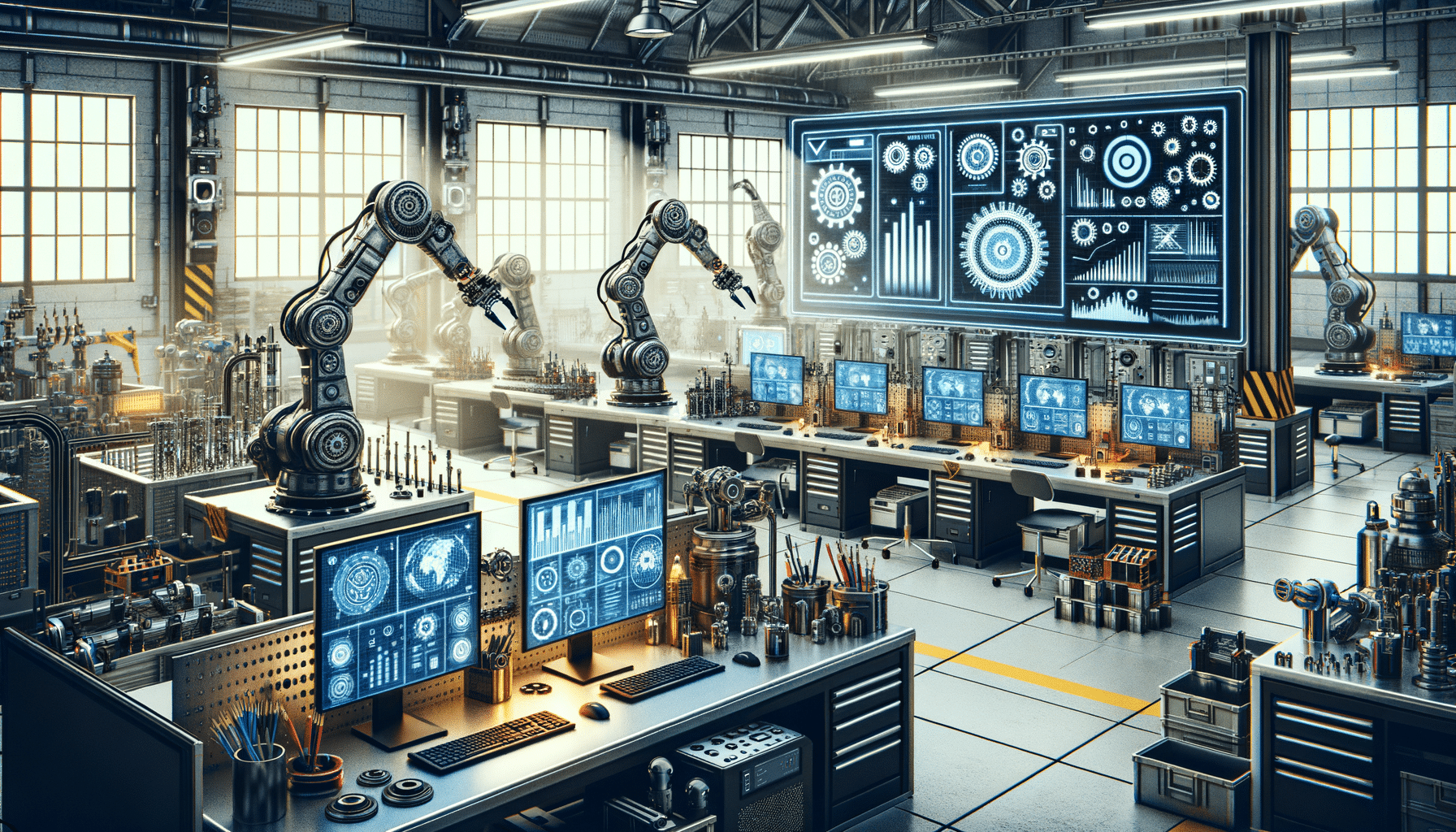
Exploring the Impact and Uses of Automation Tools
Introduction to Automation Tools
In today’s fast-paced world, automation tools have become indispensable assets for businesses and individuals alike. These tools are designed to perform tasks with minimal human intervention, thereby increasing efficiency and reducing errors. From manufacturing to marketing, automation tools are revolutionizing how we approach work, allowing us to focus on more strategic tasks. As we delve deeper into the realm of automation, it becomes clear that these tools are not just about convenience; they are about transforming entire industries.
The Role of Automation in Business Operations
Automation tools play a crucial role in streamlining business operations. By automating repetitive tasks, businesses can allocate their human resources to more critical areas that require creativity and strategic thinking. For example, in customer service, chatbots can handle a significant volume of inquiries, allowing human agents to focus on more complex issues. Similarly, in accounting, automation tools can manage invoicing and payroll, reducing the risk of human error.
Some key benefits of automation in business include:
- Increased productivity: Automation allows tasks to be completed faster and more efficiently.
- Cost savings: By reducing the need for manual labor, businesses can save on operational costs.
- Improved accuracy: Automation minimizes errors, ensuring more reliable outcomes.
- Enhanced scalability: Businesses can easily scale operations without a proportional increase in workforce.
As businesses continue to embrace automation, they are not only improving their bottom line but also enhancing their competitive edge in the market.
Automation Tools in Manufacturing
The manufacturing sector has been one of the earliest adopters of automation tools. From assembly lines to quality control, automation has significantly enhanced the efficiency and accuracy of manufacturing processes. Robotic arms, for instance, have transformed assembly lines by performing tasks that are too complex or dangerous for human workers. These robots can work tirelessly, ensuring consistency and precision in production.
Moreover, automation tools in manufacturing are not limited to physical tasks. Software tools are used for inventory management, supply chain optimization, and predictive maintenance. By analyzing data, these tools can predict when a machine is likely to fail, allowing for preemptive maintenance and reducing downtime.
Overall, the integration of automation tools in manufacturing has led to:
- Higher production rates and efficiency
- Reduced waste and operational costs
- Improved safety for workers
- Enhanced product quality and consistency
As technology continues to advance, the scope and capabilities of automation tools in manufacturing are expected to grow exponentially.
Impact on the Workforce
While automation tools bring numerous benefits, they also pose challenges, particularly concerning the workforce. The fear of job displacement is a common concern as automation tools take over tasks traditionally performed by humans. However, it’s essential to view automation as an opportunity rather than a threat. Automation tools can handle mundane tasks, allowing employees to focus on more strategic and creative aspects of their jobs.
Educational and training programs are crucial in helping the workforce adapt to this change. By upskilling and reskilling, employees can learn to work alongside automation tools, enhancing their value within the organization. Furthermore, new job roles are emerging as a result of automation, such as data analysts and automation specialists, creating fresh opportunities for the workforce.
Ultimately, the impact of automation on the workforce depends on how organizations manage this transition. By fostering a culture of continuous learning and adaptability, businesses can ensure that both their employees and automation tools coexist and thrive.
Future of Automation Tools
The future of automation tools is promising, with advancements in artificial intelligence and machine learning paving the way for more sophisticated applications. These technologies are enabling automation tools to learn and adapt, making them more efficient and capable of handling complex tasks.
In the coming years, we can expect to see automation tools becoming more integrated into daily life, from smart homes to autonomous vehicles. The healthcare sector, for instance, is likely to benefit from automation tools that can assist in diagnostics and patient care, leading to improved outcomes and efficiency.
Moreover, as automation tools become more accessible, even small businesses and individuals will be able to leverage their benefits. This democratization of technology will lead to a more level playing field, where innovation and creativity can flourish.
In conclusion, automation tools are set to play a pivotal role in shaping the future. By embracing these tools, we can unlock new possibilities and drive progress across various sectors.


